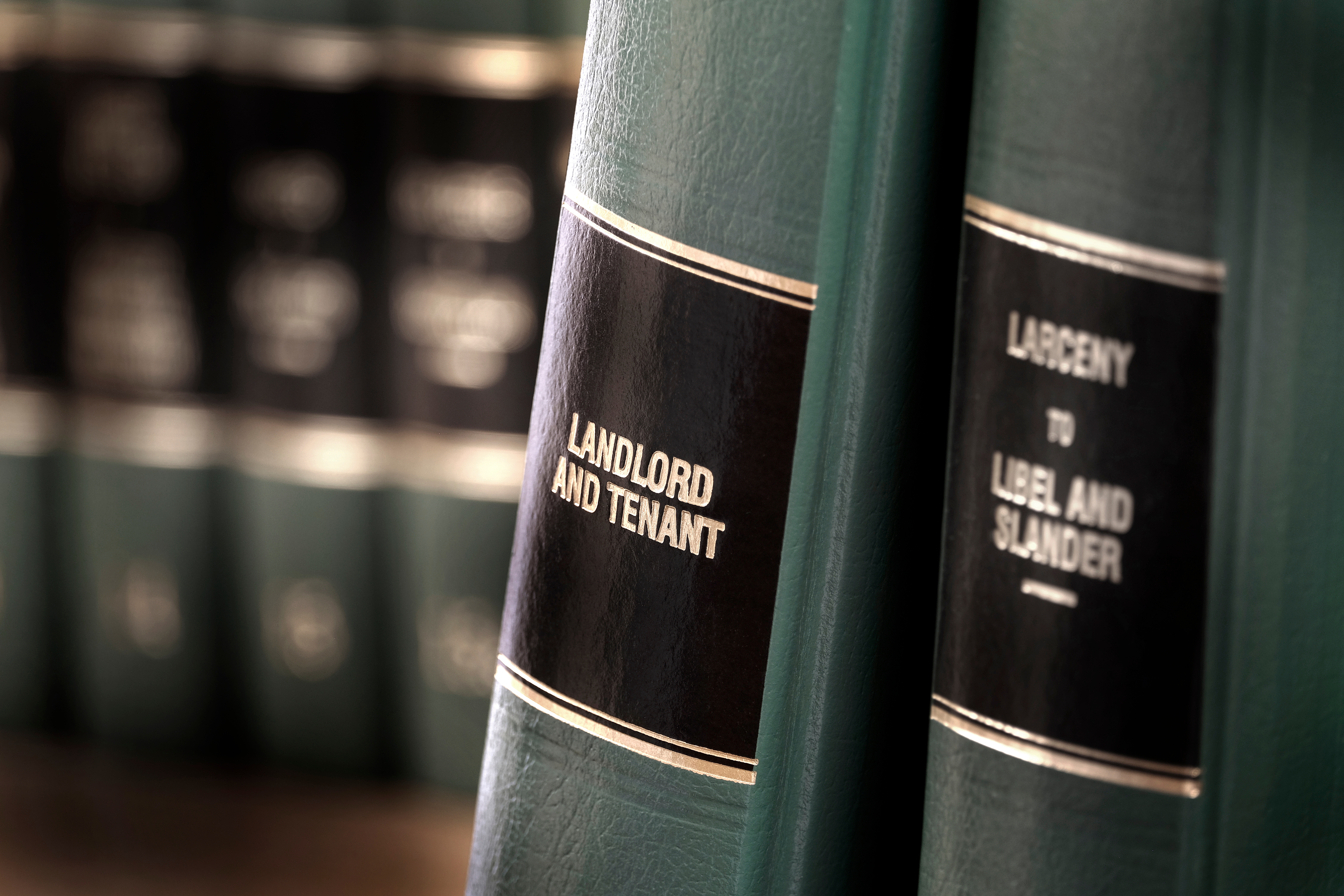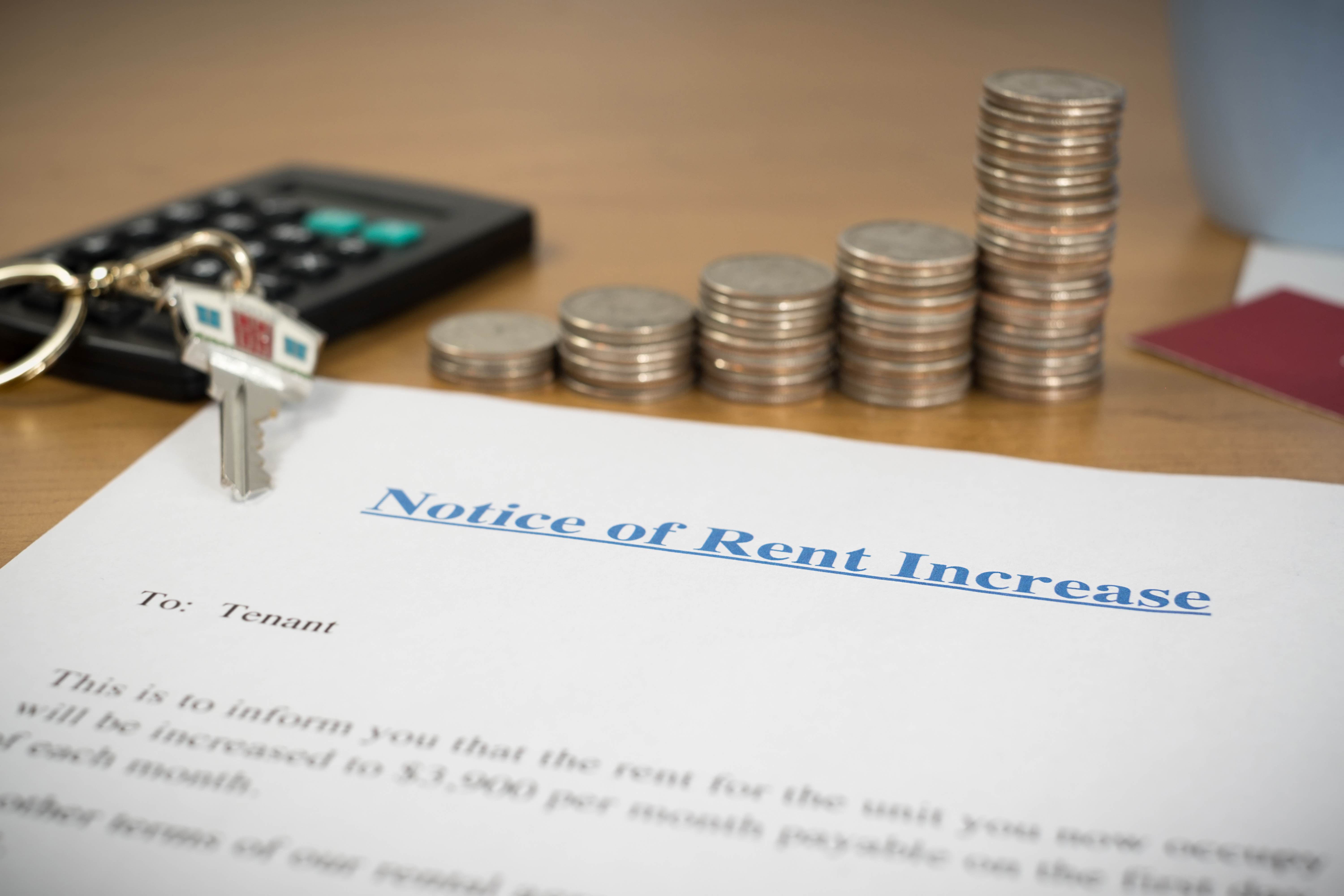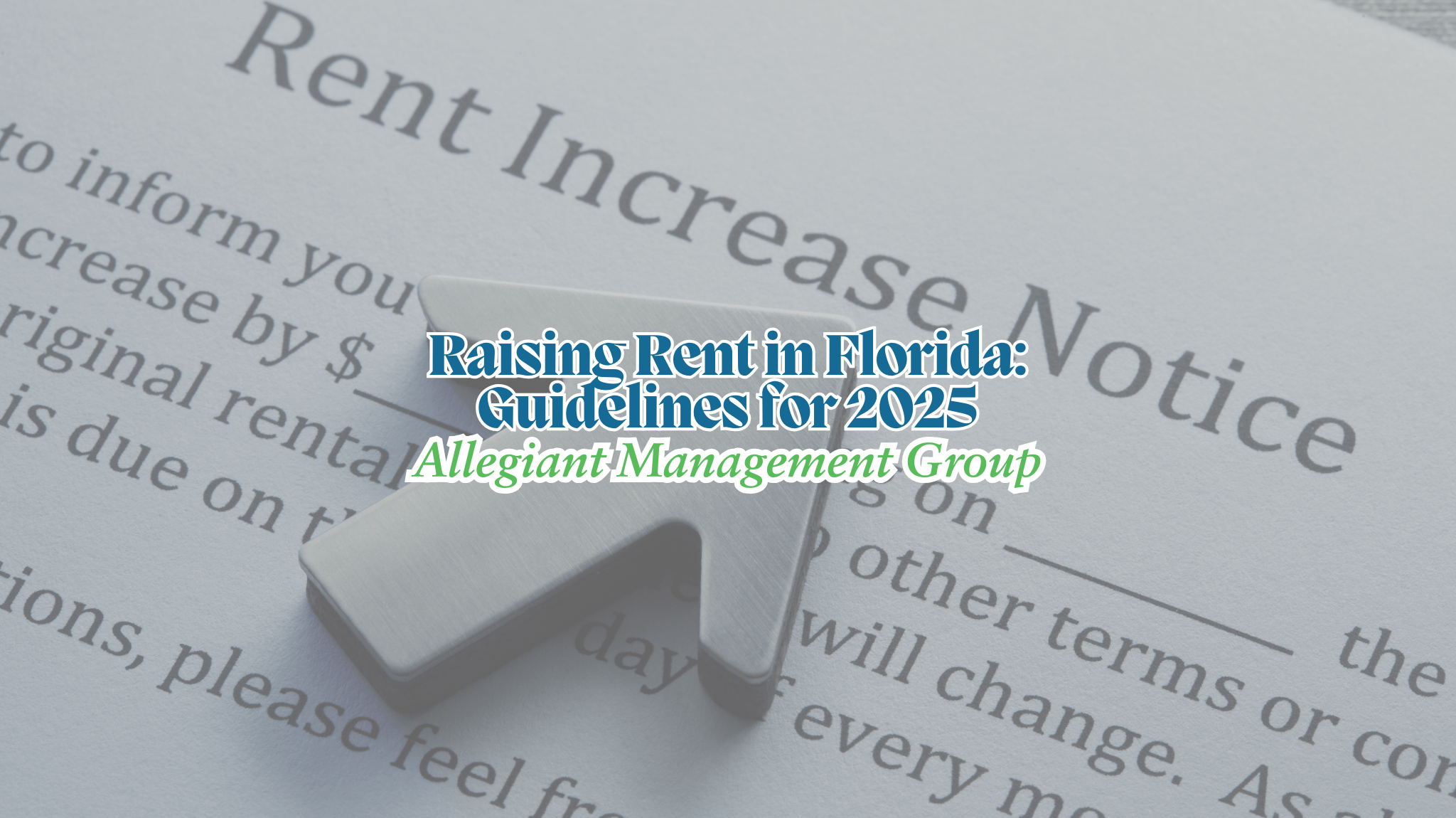Last Updated July 7, 2025.
High Rent in Florida - Why are Rent Prices on The Rise
As inflation rises in the United States, people are trying to find ways to cover the higher costs of goods and services.
This is causing landlords in the State of Florida to begin looking at their rental rates. They are looking at whether they need to change rental prices. This is to keep up with housing supply, market trends, and rising costs in 2025.
They want to offset their rising cost for:
- Property Maintenance
- Taxes
- Insurance Premiums
- Utilities
- HOA Fees
Florida’s landlord-tenant laws provide guidance on how and when landlords can increase rent. Understanding renters rights in Florida helps them avoid disputes and potential problems.
These Florida Statutes ensure fair treatment for both property owners and tenants. Florida does not currently have rent control laws, allowing landlords to determine their market rate.
Key Aspects of Laws on Increasing Rent 2025
In this blog, we’ll explore the key aspects of Florida rent increase laws, including:
- Understanding lease terms and limitations for mid-lease and existing units rent payment adjustments.
- A detailed look at the written notice period landlords must provide for both month-to-month and long-term leases.
- Tips for fostering tenant understanding and cooperation.
By the end of this blog, you will understand the legal rules and best ways to raise rent in Florida for your rental unit. This information will help you stay compliant and confident in managing your rental properties.

Florida Rent Control Laws 2025
With rental housing in Florida we are in the midst of an affordable housing crisis. Rent Control Florida laws do not exist and state law stops local governments from setting rent control rules. The only exception is during declared emergencies that greatly affect public health or safety in which cities or counties may do so.
Even in these cases, authorities must follow strict rules and approval steps. These measures are similar to those enacted by the Biden Administration during his presidency.
What Percentage Can a Landlord Raise Rent in Florida
Florida has no statewide rent control laws, meaning landlords can raise rent without a set limit. However, local governments may impose regulations in emergencies.
For month-to-month tenants, landlords must provide at least 15 days’ notice before increasing rent. Lease agreements dictate rent increases at lease renewal for fixed-term leases.
Sample Rent Increase Notice
Here you can download a Rent Increase Notice for free.
Rent Increase Notice Florida Law & Proper Notice for Rent Increases in Florida
Following Florida rental increase laws notice requirements, landlords must give a 30-day notice for month-to-month leases. People refer to this as a rent increase notice, and they should always use it.
We recommend sending these notices by certified mail. Landlords must follow these rent increase notice Florida guidelines to stay compliant.
Some cities in Florida may have additional local regulations. The local governments may require longer notice periods, particularly for significant increases.
For example, in South Florida, Miami Dade landlords have a law about rent increases. They must give tenants 60 days' notice before raising rent by more than 5%.
Tenants need this notice to make an informed decision about whether they wish to renew the lease or move out. Landlords must not withhold rent increase notices beyond the proper notice period. Checking local laws can help ensure compliance.

Is There a Rent Increase Limit in Florida?
What amount can my landlord increase rent in Florida? There technically is no cap unless outlined in lease agreement.
Florida law does not impose a rent cap or rent increase limit for landlords. Corporate landlords and investors can raise rent by any amount they choose. They just need to follow the proper notice rules. Florida does not have a rent stabilized apartment law, like New York.
Raising rent too high may cause tenants to leave, risking a vacant property. Prolonged vacancy can lead to loss of rental income, and effect the return on investment. Vacant properties face increased risks, including potential vandalism.
Without regular visits to the property, or tenants in place. These vacant properties can become targets, leading to costly repairs and legal challenges for landlords.
How Much Can I Raise My Rent?
What is a reasonable rent increase? When thinking about raising your rent, we recommend considering the cost of living at that time. The average rent increase in Florida in 2024 was 8.2%.
Experts think the average 2024 rental increase and average 2025 rental increase will be remarkably similar.
You will also want to review the current rental market surrounding the property. This will allow you to set a reasonable rent, which usually leads to less vacancy.
If you are looking for guidance on what to charge for rent, we will gladly review the current market with you. We will review trends, discuss rental rates, and provide insights tailored to your property.
Legal Considerations When Raising Rent in Florida
Florida law allows landlords to raise rent, but the increase must not be unfair or done out of revenge for complaints or legal actions.
A federal law, the Fair Housing Act requires landlords to treat tenants fairly. The law protects them from discrimination based on religion, disability, family status, national origin, sexual orientation, or other protected characteristics.
This means landlords cannot increase rent unfairly or in a way that targets these traits. Any rent hike must be reasonable and applied equally to all tenants, without bias or prejudice.
Security Deposits and Rent Increases
A rent increase does not automatically change the security deposit. However, landlords may ask for more money to match the higher rent.
The new lease agreement or rental agreement must state the new rent amount and any changes to the amount of the deposit.
This ensures transparency, maintains a positive landlord-tenant relationship, and follows Florida laws.

New Florida Rental Laws 2025
Florida’s 2025 rental laws introduced key changes for tenants and landlords. Monthly fees can replace security deposits, offering renters flexibility but raising concerns about fee caps and protections.
Landlords must now give 30 days’ notice to end month-to-month tenancies, up from 15 days. Most importantly a new law to address unauthorized occupants and squatting' which avoids landlords from going through eviction process.
These laws apply to all rental homes including single family homes, and multi-family homes. Expect there to be new laws for landlords 2025, as there was new Florida rental laws 2024 as well.
Staying Compliant with Florida Rent Increase Laws in 2025
In summary, Florida rent increase laws allow landlords to raise rent as long as they follow the legal requirements. The last thing you want is a tenant filing a complaint against you.
Including providing proper notice and ensuring there are no lease restrictions. We expect to see the rents stabilizing in the coming future.
Looking to navigate rental increases with ease? Connect with one of the best Orlando Property Management companies, Allegiant Management Group today! We make it east to connect with us.
Our expert team ensures you stay compliant with regulations while maximizing your rental income. Let us handle the details so you can focus on growing your investment.
Florida Rent Increase Laws - Whats Legal?
Frequently Asked Questions (FAQs) Notice of Rent Increase in Florida
What is the required notice period for raising rent in Florida?
In Florida, landlords must provide 15 days’ notice for rent increases on month-to-month leases. For fixed-term leases, landlords cannot increase the rent until the lease expires unless the contract allows it. Local laws may impose additional requirements.
Can a landlord increase the monthly rent before the lease ends?
In Florida, a landlord cannot raise rent before a lease ends. This is only possible if the lease has a clause that allows for mid-term increases. For month-to-month leases, landlords must provide 15 days’ notice before raising rent. Fixed-term leases lock in rent until expiration.
Are there any limits on rent increases in Florida?
Florida has no statewide rent control, meaning landlords can raise rent without limits. However, local governments may impose restrictions in emergencies. Rent increases must comply with lease terms, and landlords must provide 15 days’ notice for month-to-month tenants.
Does a rent increase affect the security deposit?
A rent increase can change the security deposit. This happens if the lease says the deposit must match a certain number of months' rent. If so, the landlord may request an additional deposit amount to reflect the new rent. Lease terms determine whether an adjustment is necessary.
How much notice do landlords need to give for a rent increase in Florida?
15 days’ notice for month-to-month leases; fixed-term leases cannot increase rent until renewal.
Are there any rent control laws in Florida?
No, Florida law prohibits rent control statewide. Local governments can impose temporary restrictions during emergencies.
Can a landlord raise rent before lease is up?
No, a landlord cannot raise rent before a lease ends unless the lease includes a clause allowing mid-term increases. For fixed-term leases, rent remains unchanged until renewal. Month-to-month leases require 15 days’ notice before a rent increase.
How much notice must a landlord give before raising rent?
Florida law requires landlords to give 30 days’ notice before increasing rent for month-to-month tenants. For fixed-term leases, rent increases are only allowed at renewal unless specified in the lease agreement. Local ordinances may apply.
How long do you have to give notice for rent increase?
Florida law requires landlords to give at least 30 days’ notice before increasing rent for month-to-month tenants. For fixed-term leases, the lease agreement must specify any rent increases before renewal. Local ordinances may impose additional rules.
What is reasonable rent increase 2024?
A reasonable rent increase in 2024 is typically 3% to 10%, depending on inflation, market rates, and local laws. Some cities have rent control limiting increases, while others allow larger hikes based on demand. Always check state and local regulations for specific limits.
What is reasonable rent increase in 2025?
Experts expect a fair rent increase in 2025 to fall between 3% and 10%. This will depend on inflation, local market conditions, and rental demand. Some areas with rent control may have stricter limits. Always check state and local laws for specific regulations on rent increases.
Disclaimer: The information provided is for general information purposes only and is not legal advice. Please consult a qualified attorney for legal advice. This information does not create an attorney-client relationship.



